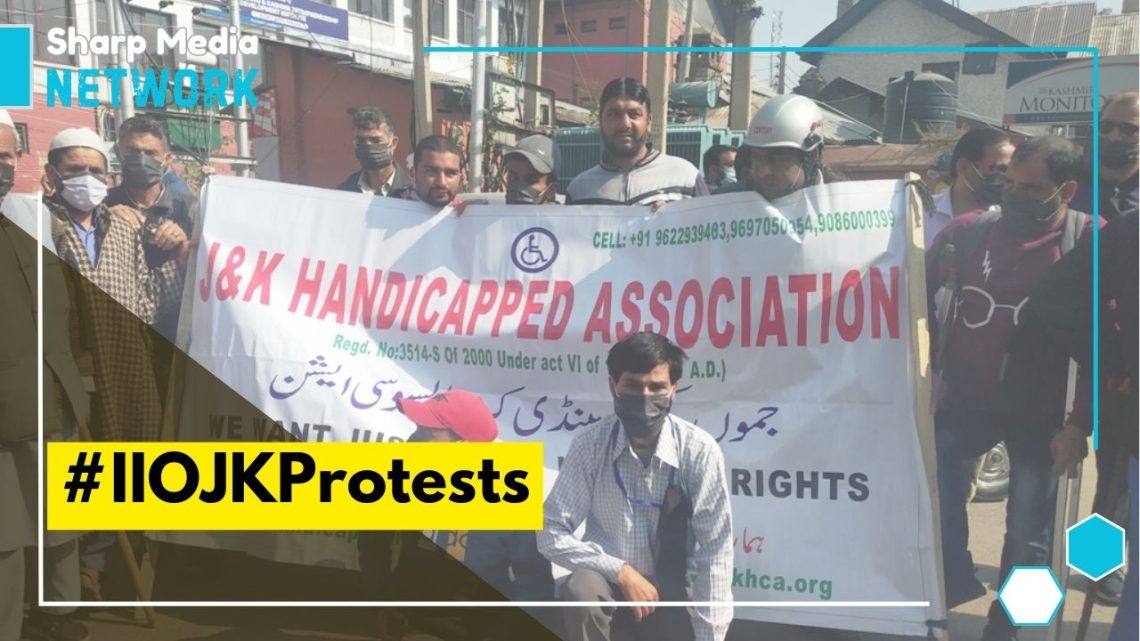
Persons with Disabilities in IIOJK Demand Justice, Slam Govt for Broken Promises
April 16, 2025Frustrated by years of neglect and unfulfilled promises, persons with disabilities in Kupwara hit the streets demanding dignity, rights, and action.
In Kupwara district of Indian Illegally Occupied Jammu and Kashmir (IIOJK), dozens of persons with disabilities (PwDs) took to the streets in protest against the authorities, accusing them of turning a blind eye to their prolonged suffering.
The demonstrators voiced anger over what they described as repeated betrayals by the government. They highlighted a widening gap between the promises made in election manifestos and the ground reality they continue to face every day.
“We are fighting for our basic survival,” said Mushtaq Ahmad, one of the protesters. “Despite countless appeals, the authorities have done little to ease our hardships. We have been pleading for an increase in the disability pension from ₹1,000 to ₹3,000 for years, but our voices remain unheard.”
The protestors argued that the current pension is grossly insufficient, especially given the rising cost of living. They noted that most PwDs are unemployed or underemployed, and yet are burdened with high utility costs. “Even with no stable income, we’re forced to pay over ₹780 every month in electricity bills,” said another protester, pointing out the added stress this places on already struggling households.
Beyond financial grievances, the protesters called for the immediate and full implementation of The Rights of Persons with Disabilities Act, 2016 (RPwD Act). The Act, which is meant to guarantee equality and support for PwDs, has yet to be effectively enforced in many parts of IIOJK.
The protesters emphasized that true empowerment lies not only in legal frameworks but in active policy implementation that addresses their real-life challenges. They urged the authorities to stop using the disabled community as a tool for election optics and start delivering meaningful support.
Another major demand raised during the protest was the increase in the upper age limit for applying to government jobs—from the current threshold to 48 years. The demonstrators argued that, due to systemic barriers, many PwDs are unable to secure jobs at a younger age and should be given a fair chance later in life.
Protesters also criticized the lack of inclusive infrastructure, limited access to healthcare, and absence of vocational training centers, all of which worsen their marginalization.
The protest in Kupwara serves as a clear reminder of the challenges faced by the disabled community in IIOJK. As calls for dignity, accessibility, and inclusion grow louder, it remains to be seen whether the government will finally respond with action rather than empty assurances.

